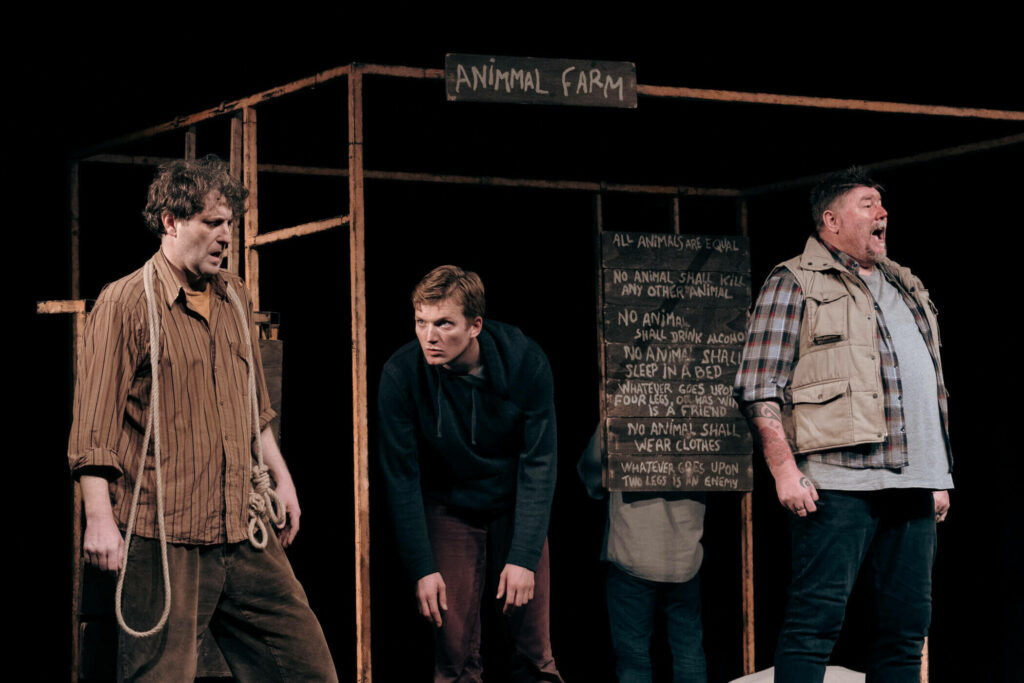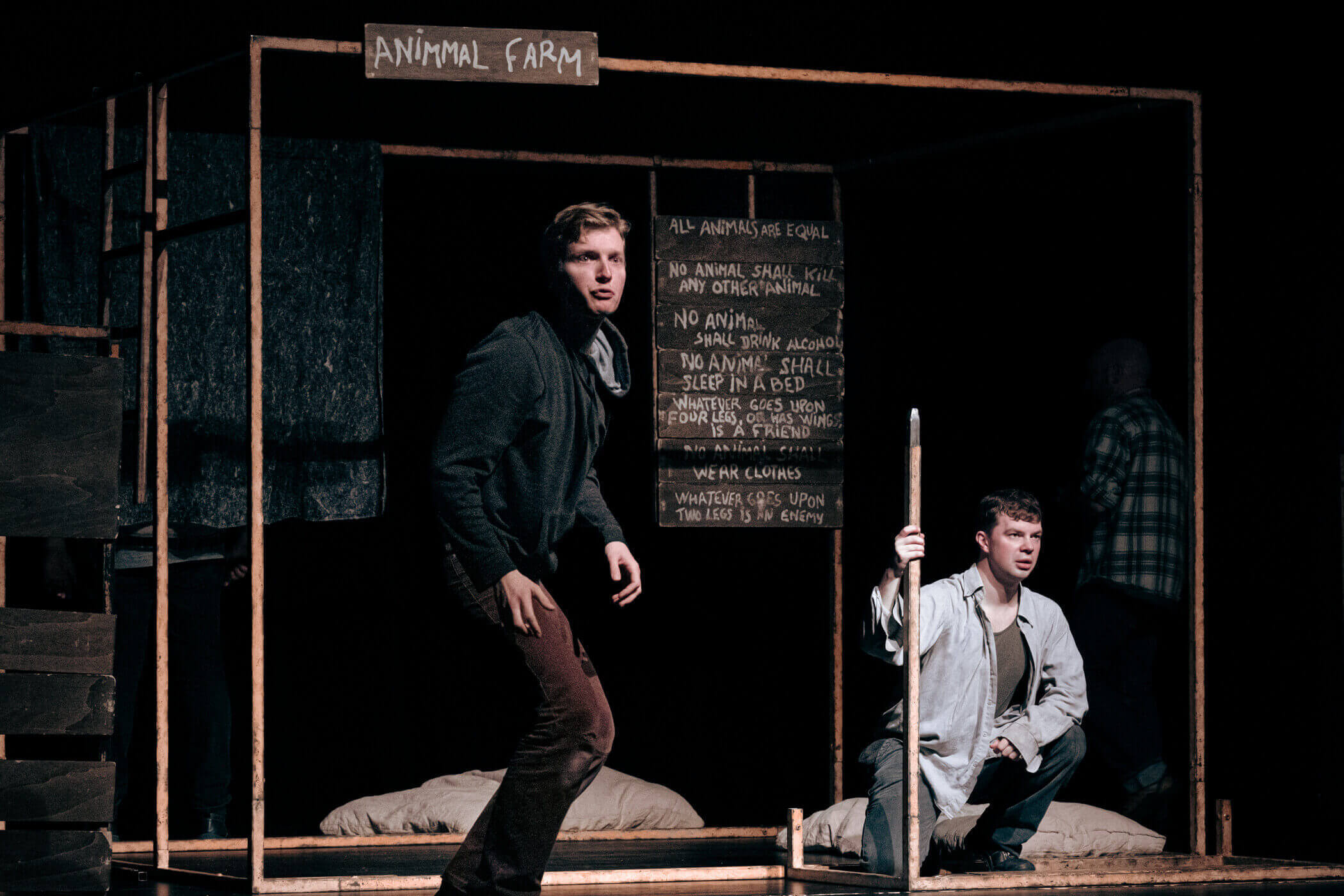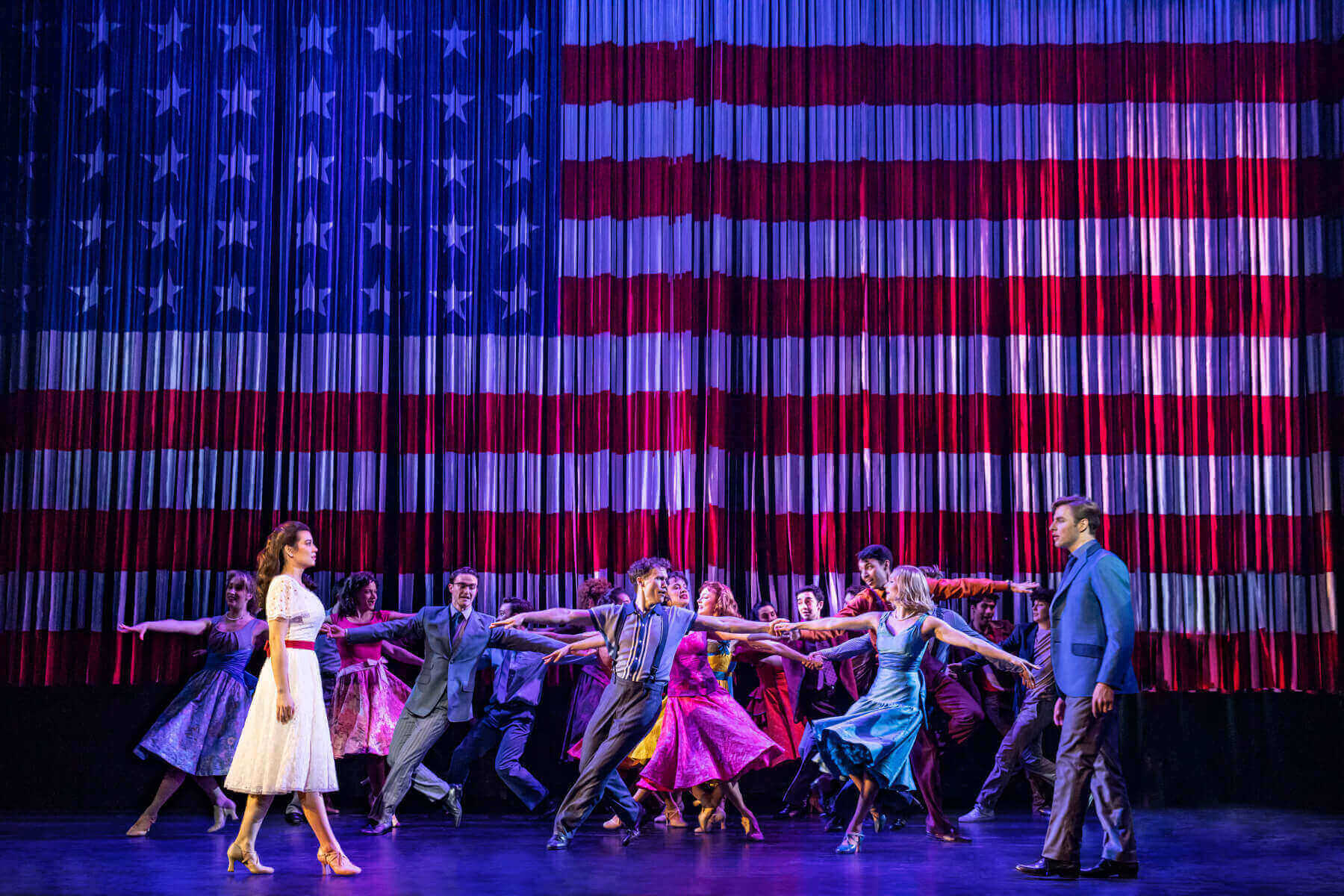ADGE’s modern interpretation of the classic dystopian novella by George Orwell will leave you questioning your humanity.
Since its publication in 1945 England, Animal Farm by George Orwell has reached readers from across the world and become such a renowned novella that it has landed on mandatory reading lists of many students. However, the political theme that Animal Farm presents is one that still connects to societies today but from a different viewpoint.
Originally exposing and condemning political platforms such as Stalinism and the reign of totalitarianism, Orwell not only wanted to bring to light the suffering under tyranny but also the roots of exploitation. He offers readers insights into his experience of Stalinism, Fascism and Capitalism, critiquing them all. His critique, however, is done through the use of political satire and using animals as the main characters and not humans. In this way, Orwell states in his 1946 essay Why I Write, that while writing Animal Farm, he tried “to fuse political purpose and artistic purpose into one whole.” Effective in his attempt, he wouldn’t be the last to create a fusion of political and artistic purpose with regards to his novella.
Enter The American Drama Group Europe (ADGE) and their 2022 production and adaptation of Orwell’s famous novella Animal Farm. Preformed at Amerikahaus in Munich, Germany the venue is quaint and moderately sized that a second performance had to be added due to the first one being sold out.
With a cast of only five actors, all male, Paul Stebbings’ modern interpretation allows audience members to see this story in a different point of view and cultural context compared to when they might have read it in school. For example, taking a more current viewpoint to politics, compared to the depiction of communism as it was originally intended by Orwell, Stebbings brings forth a topic that many countries face but ignore—that of the migrant worker. Just like those living under communist or tyrannical authority, migrant workers are overlooked, overworked and exploited becoming the victims of both economics and politics. Citizens of many countries turn a blind eye so as not to see the treatment of these individuals, but this time Stebbings places them onstage so we cannot look away but see how their stories relate all too closely to Orwell’s intentions of Animal Farm.
If familiar with the storyline and characters, audience members might expect to see actors on stage dressed up in animal costumes in a rural farm-like setting. Surprisingly, this was not the case with this adaptation. Following the theme of migrant workers, the actors, all coming from different countries, were dressed in casual attire of today such as hoodies, sweaters and jeans. The idea was not to have humans be animals, because Stebbings felt audience members wouldn’t take the message seriously, but rather have the actors demonstrate an animal without actually being one. This concept came across extremely well, with the actors switching roles throughout the play transitioning between the human parts, such as Farmer Jones, and that of the animal parts like Snowball the pig. They even used props, such as pillows, to represent animals like a sheep or a chicken to great effect. Even an audience member after the show shared with me how she liked the use of the pillow as an animal and how the actors changed the roles throughout, which I agree made a lasting impression as to the capabilities of the actors.

The effectiveness of the use of props as animals and the actors demonstrating how each animal might behave was not the only aspect that left an impression on the audience, but the actors themselves were so well cast that their physical appearance matched the parts they played—whether intentional or not. However, their acting was what made a convincing performance. Glyn Connop, who played the role of Napoleon pig, had such a commanding stage presence that one couldn’t help but focus your attention on him when he recited his lines.
Additionally, going along with a more modern view on the political situation presented in Animal Farm, the set was also unexpected. Taking a very minimalistic approach, Philippe Ragot and Jörg Besser from set design and construction, did not build a rural farm but instead an industrial frame of a “house” that could be taken apart at times during the production in order to rebuild it for the necessary scenes. Such a modernist style and concept coincided well in relation to the migrant worker outlook of capitalist exploitation.
Furthermore, during scene changes, the actors themselves were the ones to take apart and rebuild the set for the upcoming scenes. This to me also depicted how under such working conditions that the migrant workers have to endure, they are the ones that do everything themselves with no assistance from anyone else. They also do not get the credit for the work they do, just like in a communist or sometimes even capitalist environment because only those at the top are the ones that get the credit in the end.
But despite the overall change, or shift, in the political message from citizens living under tyrannical power to migrant workers leaving their communist background in order to work and live in the capitalist paradise that was imagined, the representation of these ideas through animals stayed true to the original. But how could it not considering that was Orwell’s overall intention to present animals with human qualities in order to get his message across?
Funny jokes and one liners were however updated such as when Napoleon pig claims “Fake news” when one of the animals points out something he lied about earlier in order to push his propaganda of an ideal farm with no hierarchy and where every animal is treated equally. However, this idealistic outlook is later discarded by Napoleon pig, who eventually turns into a dictator. All of this is well represented in the ADGE’s adaptation in a simplified but resonating production. Personally, without such a production, one wouldn’t even take a second look at such political issues because they don’t pop up in everyday life. ADGE though effectively allowed audience members the opportunity to see these issues with their politically up-to-date adaptation.
Through their interpretation of today’s political issues as brought forth through Animal Farm, audience members are left to ponder one thing—are we animals? We as individuals and as a society cannot deny the fact that as tensions continue to grow throughout the world, and with financial hardship impacting many, we become animalistic and put truth to Orwell’s idea that there is no difference between men and pigs. Because in the end, the gap between working classes continues to grow and reminds us that although “all animals are equal, some animals are more equal than others.”
Animal Farm was on tour Nov. – Dec. 2022 at various venues in Germany and Austria.



